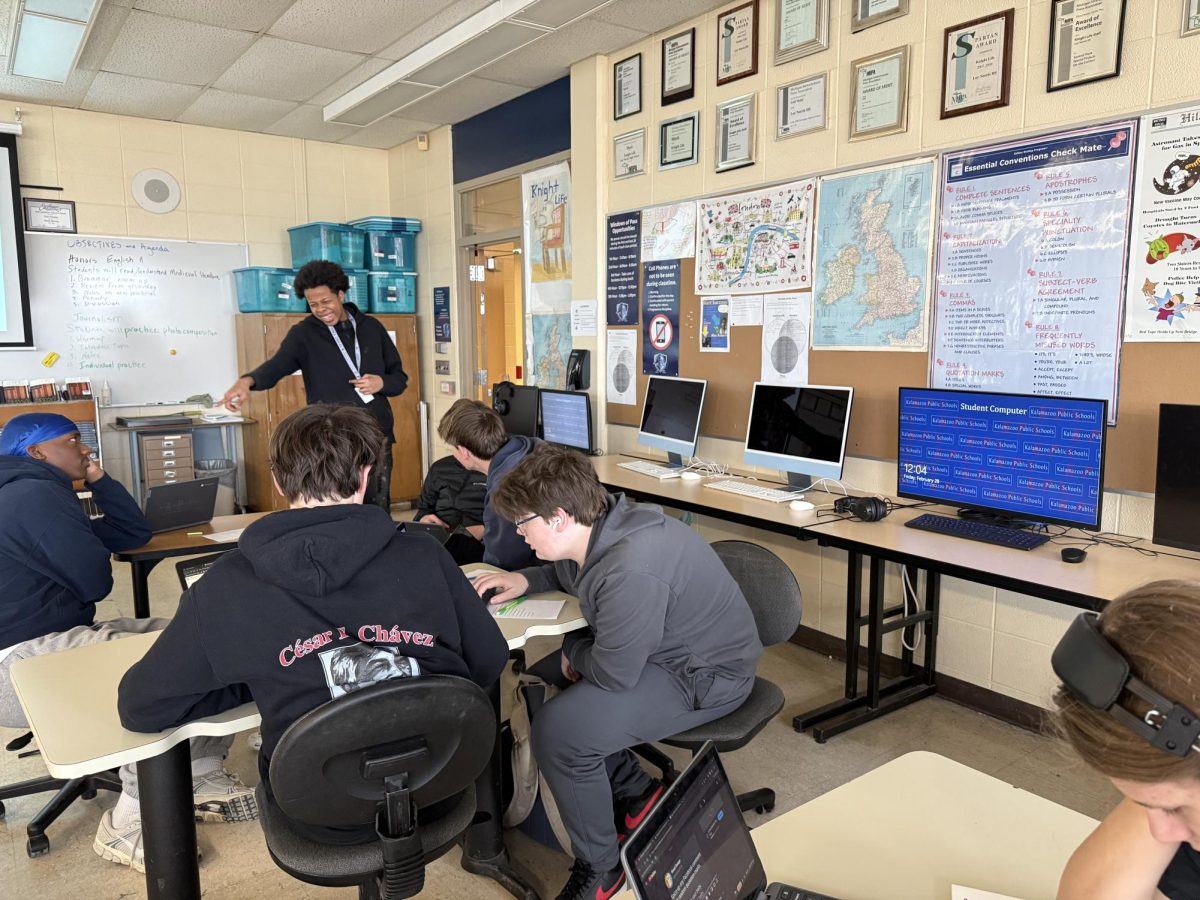As the polls began closing on Nov. 5, people gathered around televisions, computers, phones and radios, anxiously anticipating the results of the 2024 general election. State by state, electoral votes were counted the entire night, and by the morning, the nation received the news that Republican candidate Donald Trump will be taking back the White House in January.
Reactions to the results were mixed among Loy Norrix students and staff. Ranging from surprised to satisfied to fearful, feelings held about this election are becoming increasingly polarized, due in part to the highly controversial reputation of president-elect Trump.
“The way I see people talking about the results of the election is crazy,” senior Grayson Borick said. “I know people who think that Trump’s win is the greatest thing to happen ever, and I know people who think it’s the end of the world.”
The controversy of Trump’s past policy decisions, as well as civil suits and criminal charges held against him, have fed concerns over his character and reliability as the future president. Trump has faced civil action for defamation and criminal charges for illegal hush money transactions.
“It’s scary,” said government teacher Jay Peterson. “Having someone who was found liable for sexual assault and guilty of 34 felony charges with that much power really makes me wonder what he’ll do with that power.”
The Supreme Court also granted criminal immunity for all official acts while in the presidential office last July, in a 6-3 ruling. Three of the Justices in favor of immunity were appointed by Trump during his first term.
“With that type of power [immunity], there’s nothing stopping him from doing anything he wants,” Peterson said. “All he has to do is call it an official act, and he avoids all legal consequences.”
Along with the presidency, Republicans secured other notable victories, obtaining majorities in both the Senate and the House of Representatives. This legislative majority, along with the presidential win offers Republicans significantly more influence over American policy, leaving some Democratic constituents concerned.
“They [Republicans] have control of all three branches now,” Peterson said. “Whatever they want, they can put in place.”
Despite the controversy surrounding him, Trump appeals to many voters with his stance on the economy and taxation. The president-elect has proposed eliminating taxes on tips, as well as taxes on Social Security benefits and overtime payment, in addition to reducing the federal income tax, relying instead on heightened tariffs to increase federal income. These stances have attracted a large portion of voters who are particularly concerned about the state of the economy.
“I feel the elected candidate [Trump] has a plan that will address my concerns directly, particularly the economy and second amendment rights,” said government and politics teacher Michael Wright. “However, I will be the first to call him out if the policies he implements are ineffective or harmful.”
Along with fiscal propositions, social policy proposed by Trump has led to concerns in some groups over his restricting stances on issues such as women’s rights to bodily autonomy.
“Trump’s Agenda 47 and Project 2025 doesn’t only block women’s access to abortion, but to reproductive care as a whole,” said Peterson.
Although concerns over abortion access are running high, Trump has stated that he supports exceptions on a hypothetical ban for rape, incest, and to protect the life of the mother. Trump has also denied any affiliation with “Project 2025,” a highly controversial conservative agenda proposal. Despite his denial, suspicions have been raised over Trump’s affiliation with The Heritage Foundation, the group responsible for drafting the agenda. The Heritage Foundation has advised Trump on choosing his three Supreme Court Justice nominations during the former president’s past term. Trump has also suggested appointing one of Project 2025’s authors to his presidential cabinet, furthering suspicion of his intent with the plan.
Despite uncertainty, many people who were concerned about Trump’s presidency are adopting a more nihilistic view of the presidency over the coming years, instead turning to focus on upcoming state and local elections.
“The results are in, and he’s president,” said Borick. “We’re just going to have to see how the next four years turn out, but there are more elections than just the presidency.”








